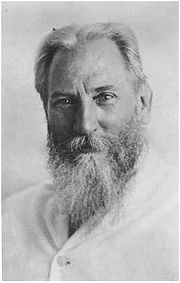Design
Design
Personality
Chart Properties
Your Cross represents the specific theme of your life. This cross embodies your unique potential & the lessons you're here to learn, providing a roadmap to fulfilling your life purpose.
We use the UTC birth time and date to do the calculations required to generate your Human Design chart.
Buy Tokens
Pay as you use, no expiry and no subscription required.Prompt Ideas
Get inspired with some epic prompt ideas.Loe de Jong's Biography
Dutch and Jewish historian and journalist, the writer of the Dutch standard work “The Kingdom of the Netherlands During World War II”.
Louis de Jong was one of the male twins of the milkman Godfried de Jong (17 August 1891, Amsterdam – 4 June 1943, Sobibór, Poland) and Betsij Aleng (22 December 1888, Amsterdam – 4 June 1943, Sobibór). He was named after his grandfather Lewi, but to prevent discrimination, the parents changed the name Lewi to Louis. But Louis changed it again to the Jewish “Loe” in his penn-name Loe de Jong.
Louis had an in his parents eyes very succesfull twin brother Salomon “Sally” de Jong (24 April 1914, Amsterdam – 31 May 1945, Buchenwald or KZ Mittelbau-Dora), who became a PhD physician on 3 October 1940 in Amsterdam. Sally married Elisabeth de Jong-Van Male (7 May 1915, Deventer – March 1944, Auschwitz) and got two children, who survived the Holocaust by going underground. Sally and Elisabeth escaped July 1943 from Camp Westerbork and fled to France. But here they were captured, imprisoned in Camp Drancy and on 17 December transported to Auschwitz. When the Russians neared the camp, he was transported to Camp Buchenwald or the nearby KZ Mittelbau-Dora, where he died of exhaustion after the war. Louis was jealous of his twin brother Sally, even after his tragic faith. In the sixties Louis had psychological treatment for it.
Their only and youngest sister Jeannette de Jong (12 October 1930, Amsterdam – 4 June 1943, Sobibór) was killed during the Holocaust before she could establish a family.
Louis and Sally de Jong visited the Vossius Gymnasium in Amsterdam. Louis studied Social Geography and History at the University of Amsterdam (Sept 1932 – Nov 1937). Though he did not study hard and was more involved in social life, he graduated November 1937 cum laude.
From 1 February 1938 till May 1940 he was editor foreign affairs of the weekly De Groene Amsterdammer. On 6 September 1939 he married Liesbeth Cost Budde (5 July 1912 – 25 February 1980), with whom he stayed till her death.
On 16 May 1940, one day after the Dutch capitulation, Louis and his pregnant wife escaped to England. In London he became editor of Radio Oranje (1 July 1940), on 30 July 1940 he held his maiden speech on the BBC. Radio Oranje was set up by the Regeringsvoorlichtingsdienst of the Dutch government in exile. Listening to it was forbidden, as was possessing a wireless radio later during the war.
From October 1945 till 1979 he was the director of the Rijksinstituut voor Oorlogsdocumentatie (RIOD), an institute that had to collect, to archive and to publish documents with regard to the Dutch history during WW2. He joined the organisation 15 September 1945.
De Jong wrote the 14 Volumes of “Het Koninkrijk der Nederlanden in de Tweede Wereldoorlog (The Kingdom of the Netherlands During World War II). He wrote 2000 words per day. About his personal history the Wikipedia said: “The investigative committee was highly critical of de Jong’s insertion of his own personal history in the series. He described in volume 3 how he fled the Netherlands, in volume 7 how his family fared during the war, and reflected on his family’s history in volume 12.[3]”
He became famous in the Netherlands on 6 May 1960, when he started presenting the Dutch Television Series “De bezetting” (The 40-45 occupation, 1960-1965). He won the 1961 Nipkow award for it. Major questions that puzzled De Jong and the Dutch nation were: How could this happen? Why were so many Dutch Jewish citizens killed? Could people have any knowledge of the Holocaust? Why was the resistance so early broken? The television series in 21 parts, that shocked the Dutch nation can like most of his work found online (see Events). No other television series dealing with Dutch history ever gained that impact and popularity.
A spin-off was also shown on German television(Die Besatzung, WDR). But the “Einschaltquoten” were low. The Germans were not interested in what happened in the Kennemerduinen, behind the by German tourists more popular Zandvoort aan Zee. Just as the inhabitants of Goethe city Weimar, had no interest in the place of horror Buchenwald where his twin brother Sally de Jong after the liberation died.
Loe de Jong died on 5 March 2005 at old age in Amsterdam.
Link to Wikipedia
Your Cross represents the specific theme of your life. This cross embodies your unique potential & the lessons you're here to learn, providing a roadmap to fulfilling your life purpose.
We use the UTC birth time and date to do the calculations required to generate your Human Design chart.
Prompt Ideas
Get inspired with some epic prompt ideas.Marv Brown
4/6 Sacral Manifesting Generator





